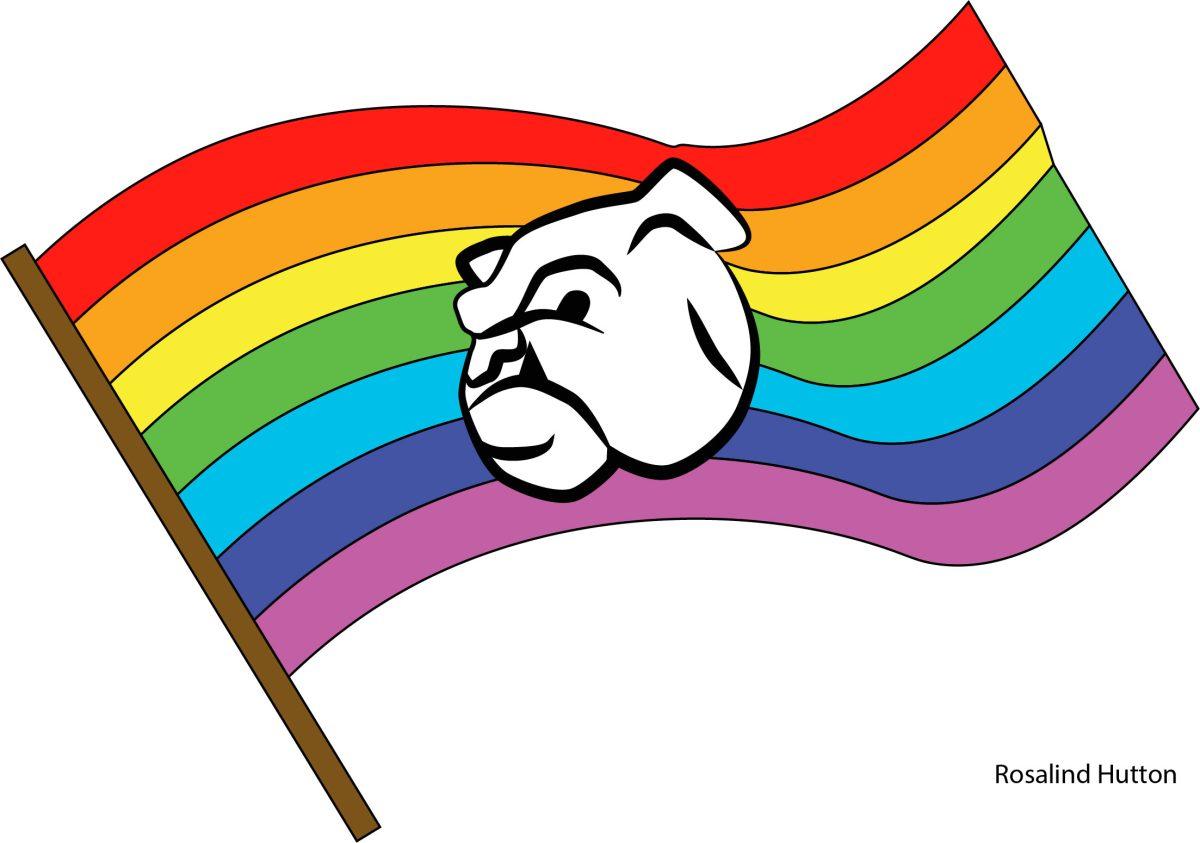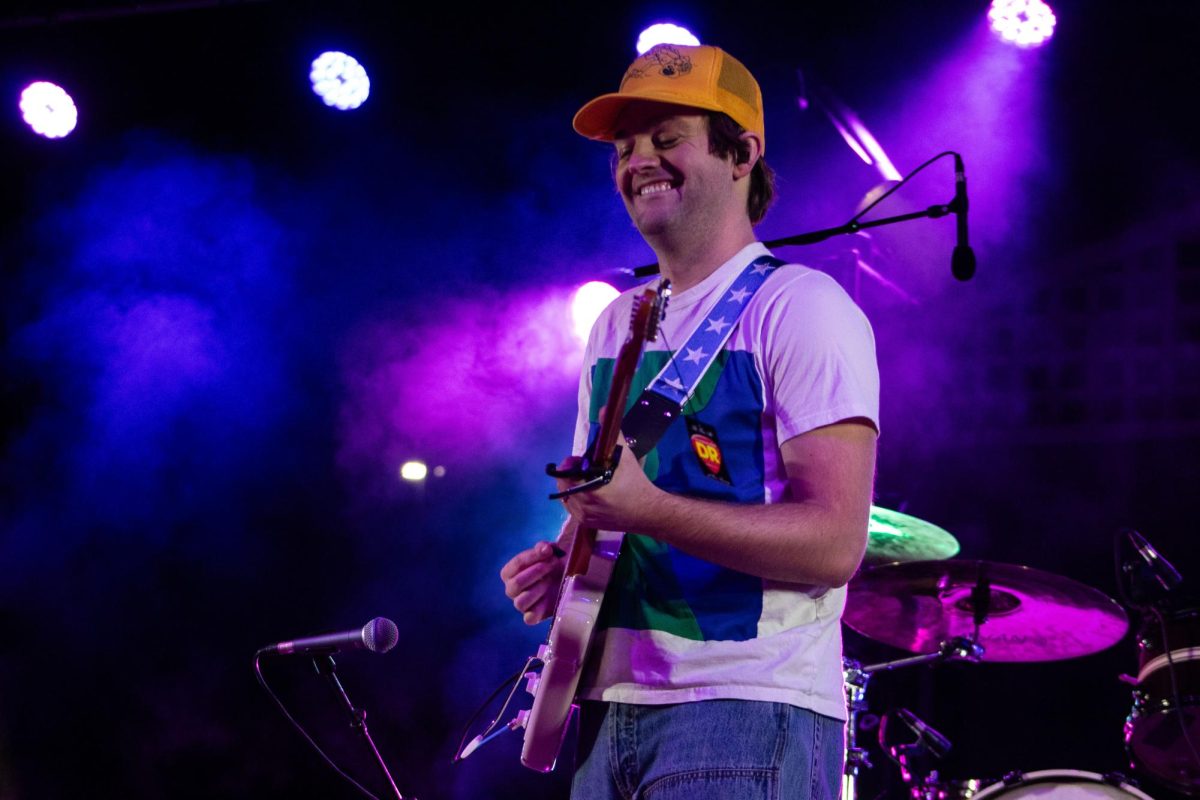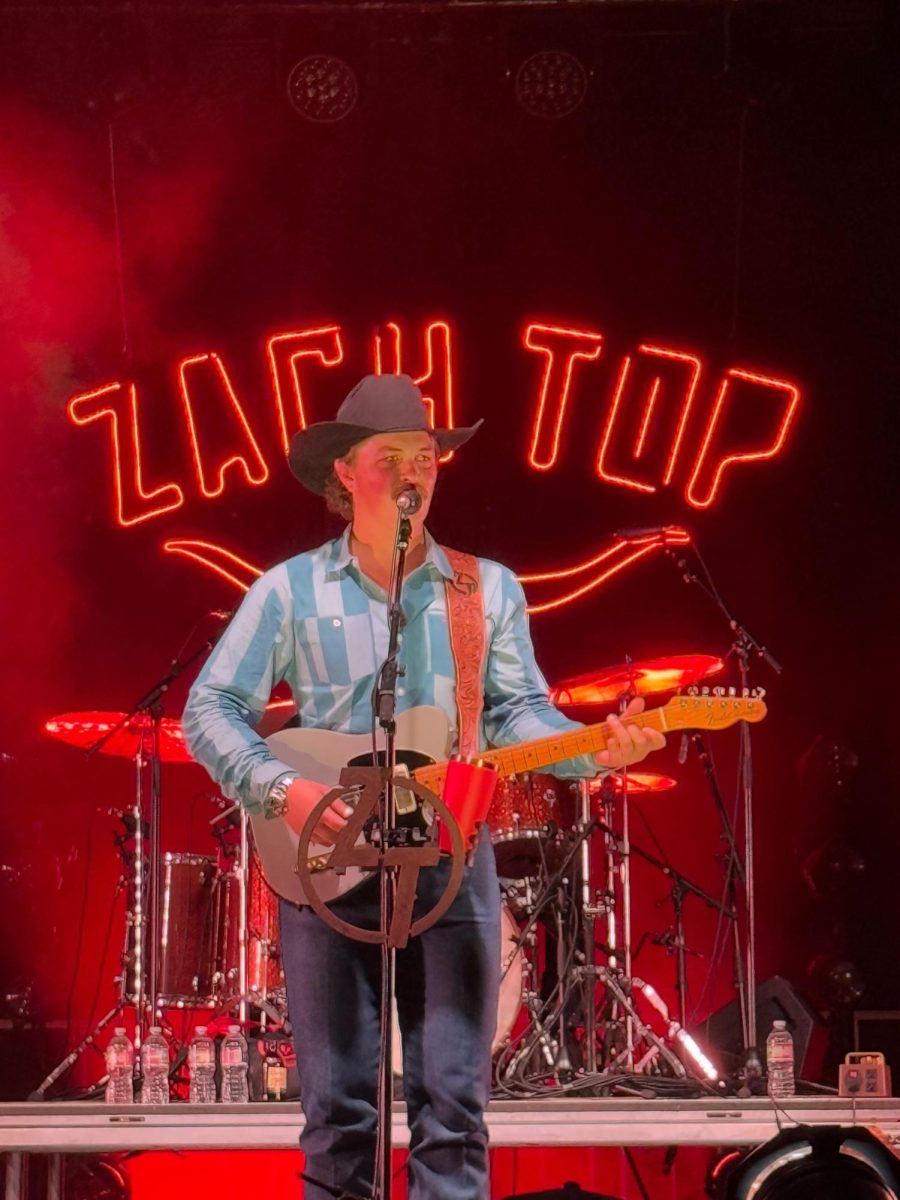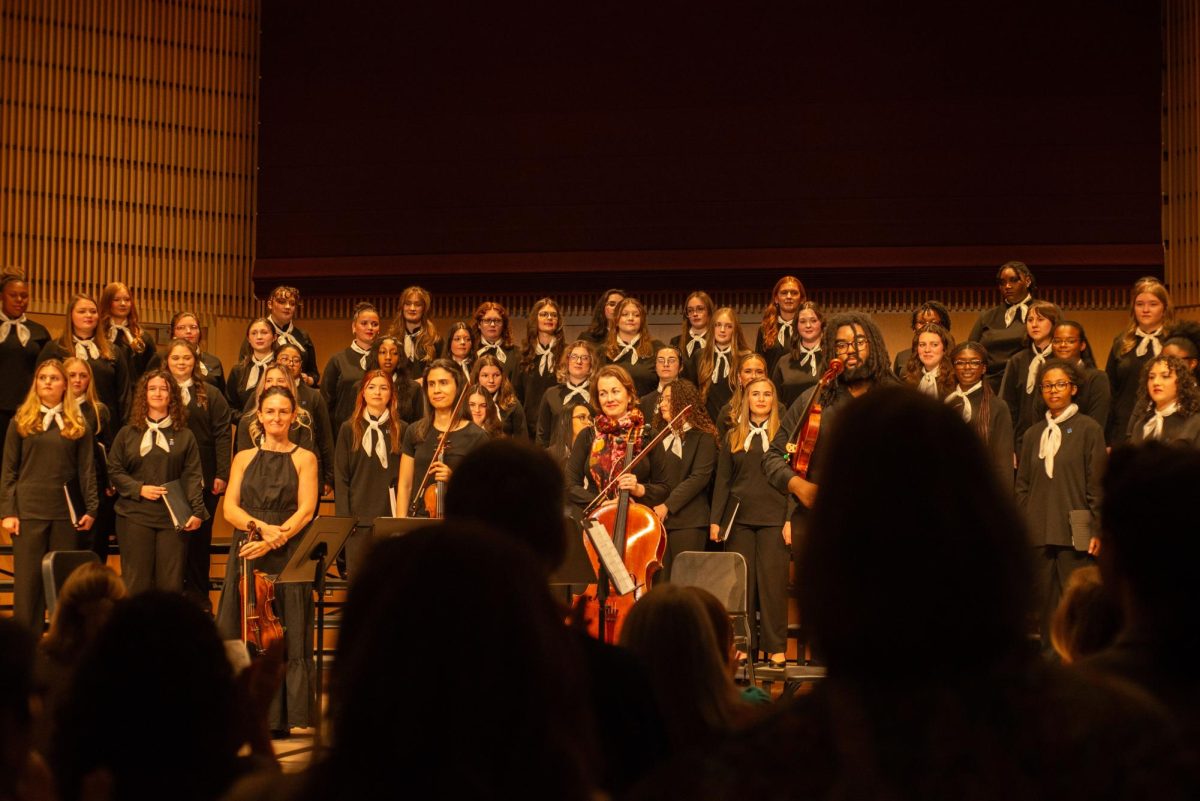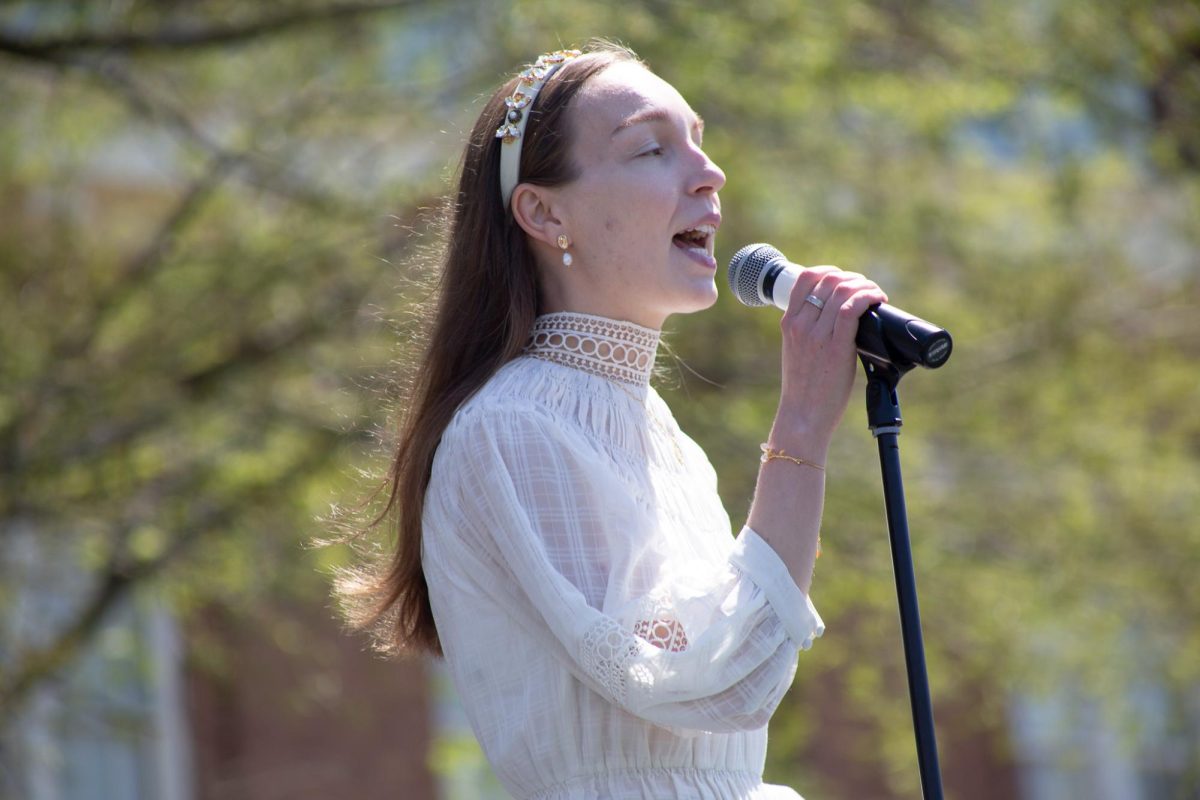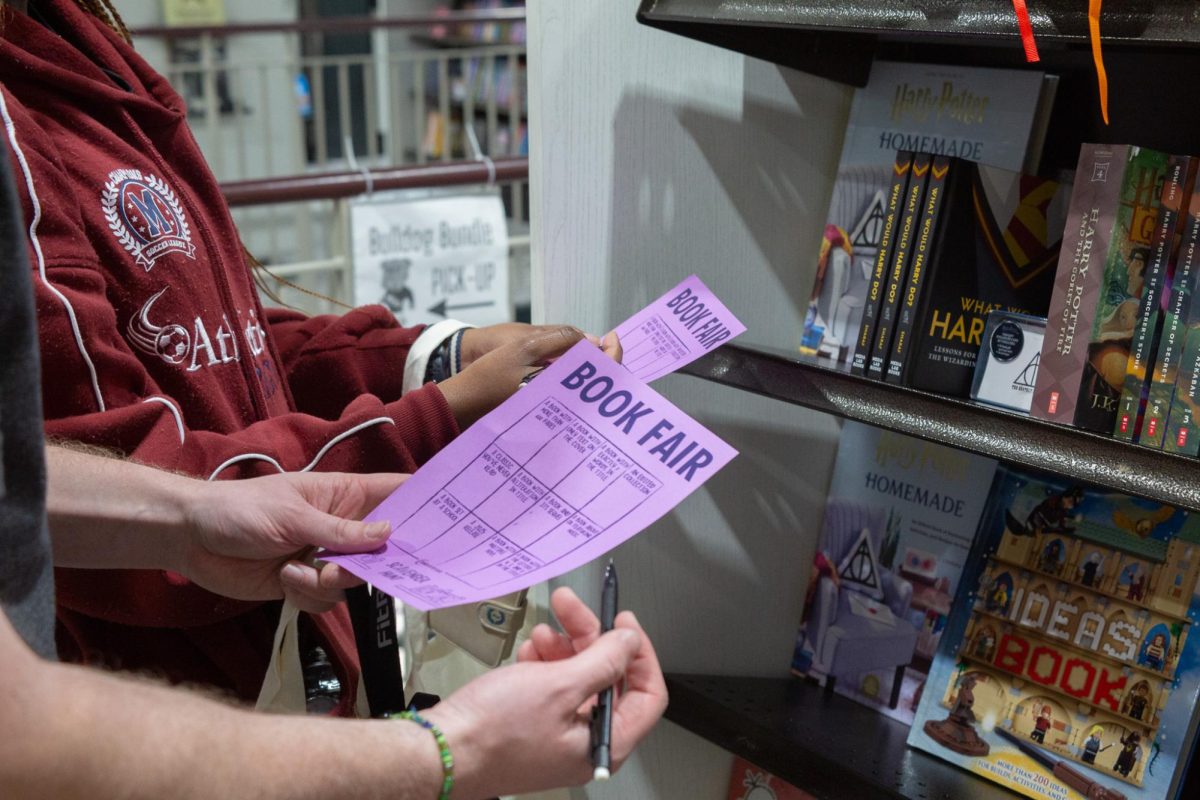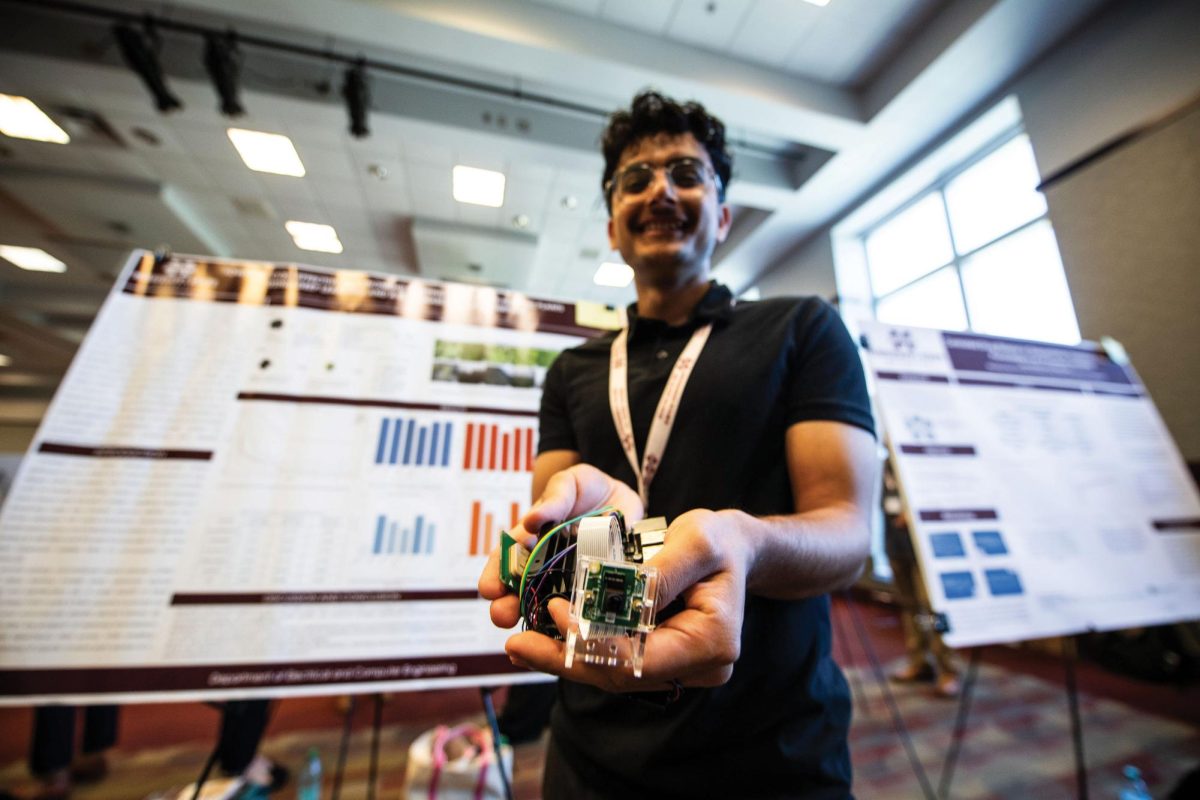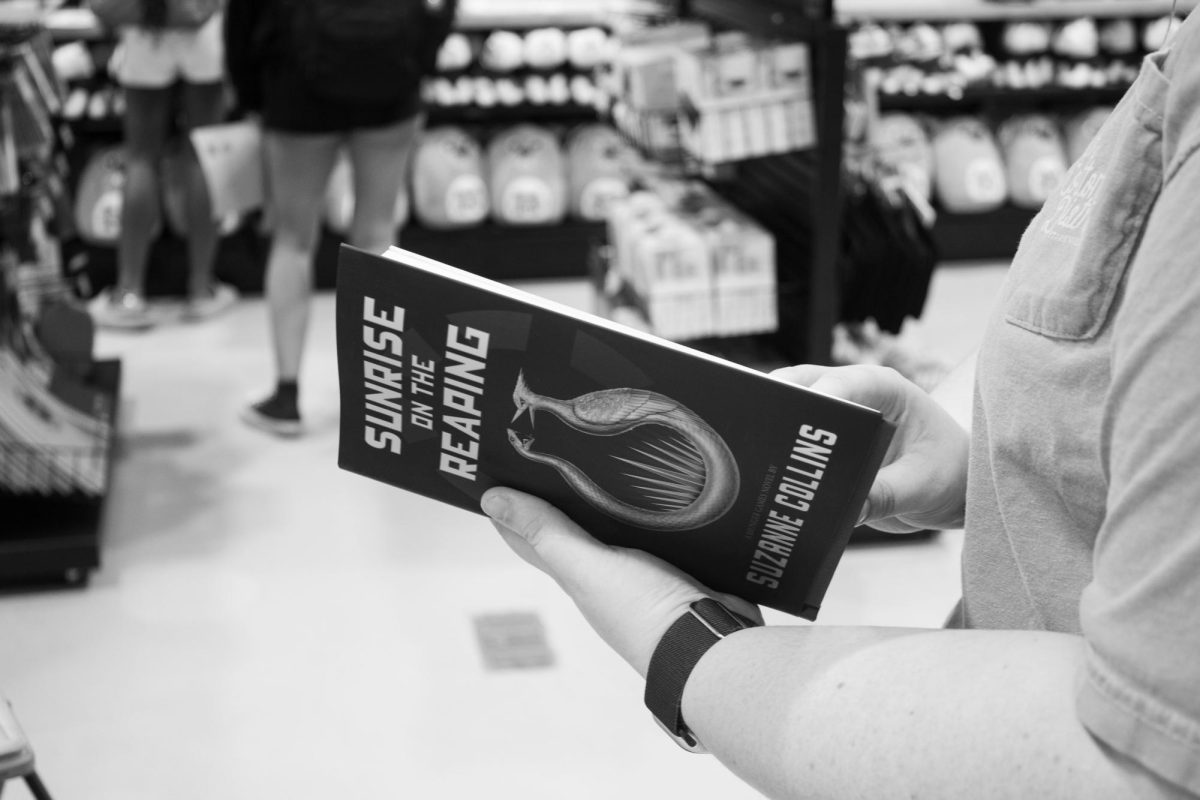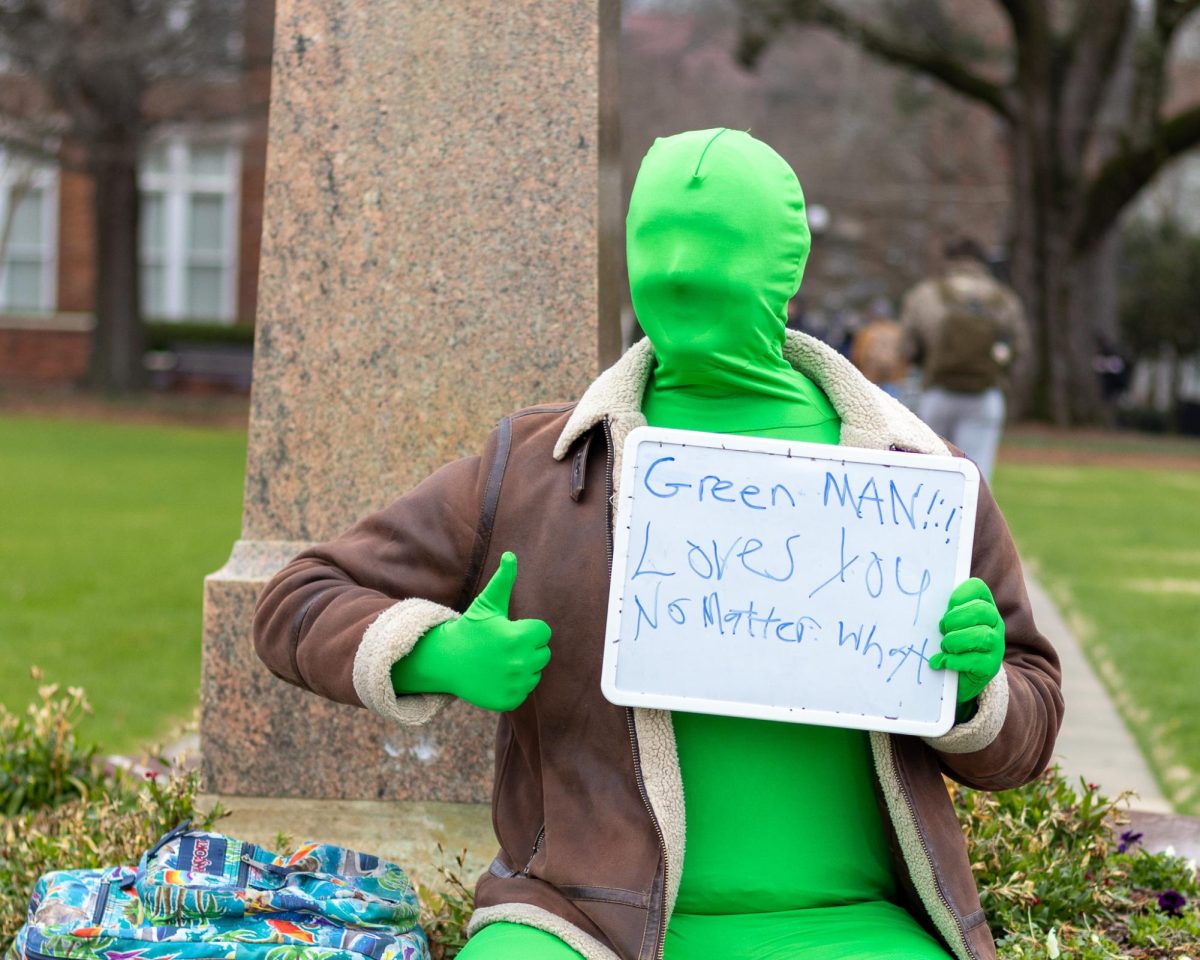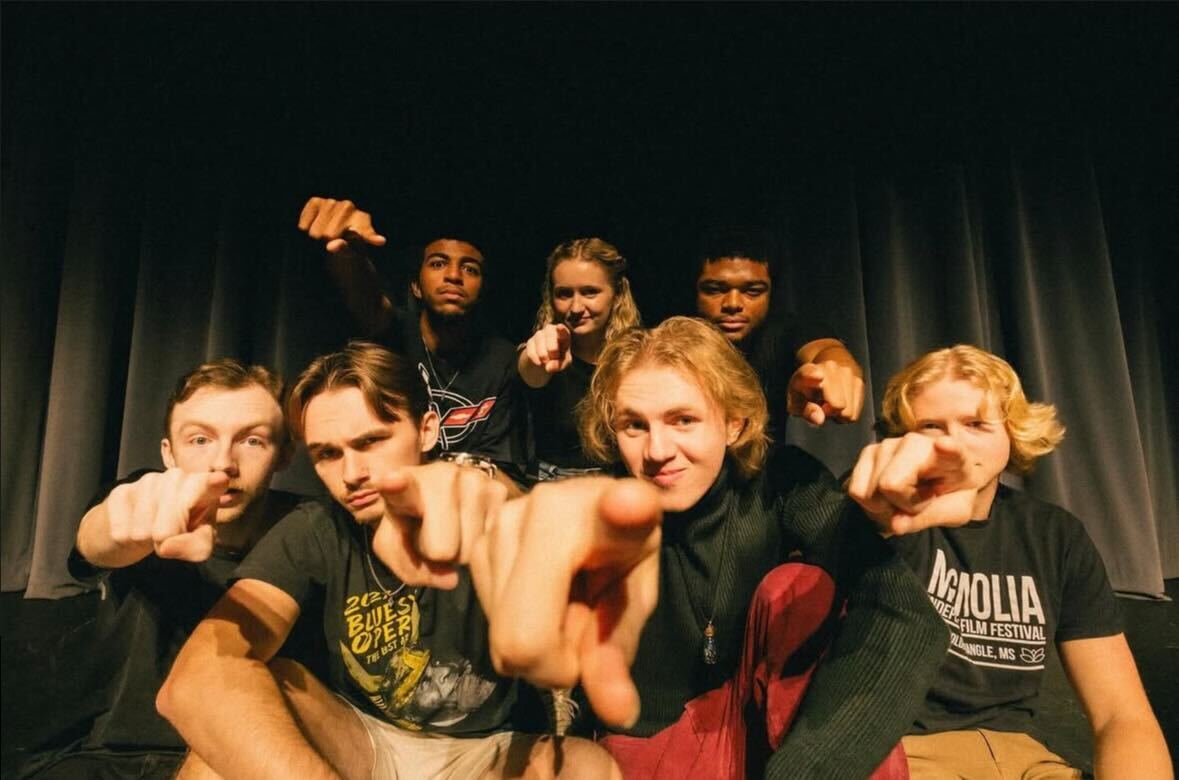Each summer thousands of students pack their bags and prepare to start college at Mississippi State University. Many students worry about finding friends and a place where they will feel welcome. For members of the LGBTQ community, these fears are amplified by concerns about prejudice and discrimination.
When Nathan Chin came to Starkville in 2016, he began looking into the LBGTQ community on campus.
“As an LGBTQ person, when you come to the South there are certain fears and awareness you want to get out of the way,” Chin said. “So I tried to find any clubs or LGBTQ resources I could find on campus, and the two I found were the LGBT+ Union and MSU Spectrum.”
Chin believes organizations like MSU Spectrum make it easier for LGBTQ students to succeed on campus. Chin said a strong support group, which is important for all students, can be even more crucial for LGBTQ students.
“It is so much more than just the club itself,” Chin said. “Social connections to me are very important because it helps support a person, especially through the college experience, since college is a very stressful time and can be a very lonely time.”
MSU Spectrum advisor Melissa Grimes said for many students, college is the first time they can explore who they are.
“Often these kids come from ultra-conservative, religious households in the South, and often by the time they get to college they realize they are LGBTQ, but they have no way to talk to someone about that in a positive way,” Grimes said. “Their only interactions have been people telling them they are going to hell, or really negative things like that.”
Grimes said MSU Spectrum provides LBGTQ students with a supportive social structure to encourage their growth during a stressful period in their lives.
“Spectrum gives the kids a safe place to go to, a place to make friends who are also in the LGBTQ community,” Grimes said. “We do some events and some activism-related stuff when they want to, but it is primarily meant to be a social organization.”
Although Grimes has only been the MSU Spectrum adviser for two years, she has been involved with the group since her time as a student.
“Spectrum was really special for me when I was a student because it gave me a place when I didn’t have anywhere else to go, at least not anywhere else where I could openly be myself,” Grimes said.
MSU Spectrum holds one general meeting and one council meeting each week, with activities at the general meeting varying from week to week.
“Some weeks we have brought in Health Promotion and Wellness to give a safe sex talk, other weeks we are just playing board games,” Grimes said. “It varies from week to week, and whatever the kids want to do is what we do.”
Starkville native Joe Evans said while he has seen major strides made for the LGBTQ community in Starkville over the years, but there is still a lot of work to be done.
“I think the Pride Parade was very exciting,” Evans said. “I think we may, in some ways, be hopefully turning a corner, and getting a little more acceptance and a little more incorporation into the culture around here.”
Evans believes the LGBTQ community is underserved in a variety of areas, including religious institutions.
“The church I attend, University Baptist Church, is one of the few churches in town that is welcoming and affirming of the LGBT community,” Evans said. “We were talking in church having this discussion just a few weeks ago about how many larger parts of the church alienate the LGBT community, and I think that is a tragedy.”
Evans recently asked some MSU students who attend University Baptist Church if there was a Christian LGBTQ organization on campus. When they said there were none, they suggested Evans should start it.
“So, I said, ‘OK,’” Evans said.
Evans said he has met with some other campus organizations and faculty members to discuss plans for the organization, and believes the group will start in the upcoming fall semester.
“I met with Spectrum, which is one of the two organizations on campus I know about,” Evans said. “And I just basically pitched the idea, and I had a few takers I think, and so like I said, it is in the infancy stages right now and so we are just trying to get something going, get something off the ground.”
Evans said it was important for him to make it as clear as possible what his intentions with the organization are.
“I want it to be a place where people in the LGBT community can gather and feel safe and feel accepted into the body of Christ,” Evans said. “I want to be very clear, this is not some sort of trap I am setting to get people to come and ‘pray the gay away,’ and this is not any sort of ‘love the sinner, hate the sin’ situation. I don’t buy into that at all.”
While Evans believes the group will eventually exist as a separate organization on campus, he said the group might be part of MSU Spectrum for the time being. Evans was not sure how the wider LGBTQ community would initially react to the idea of a Christian LGBTQ group on campus, but he has been pleased with the reaction so far.
“By and large, the church does alienate the LGBT community, and I know there is a lot of resentment in that community against organized religion in a lot of cases, and often justifiably so,” Evans said. “And I was pleasantly surprised by the opportunity that was offered, and the enthusiasm with which the idea was met.”
Bert Montgomery, the pastor of University Baptist Church and instructor of sociology and religion at MSU, believes the creation of a Christian group on campus focusing on the LGBTQ community is an important step in ensuring LGBTQ students are comfortable being themselves at college.
“The perception in the culture, especially in the Bible belt, is that you cannot be gay and Christian at the same time, and of course, that is simply not true,” Montgomery said. “Even in churches that preach that kind of thing, there will be people in the closet.”
Montgomery said he has seen MSU grow in acceptance.
“When I got here, Spectrum didn’t publicly announce their meetings, and now they can, so I have been very pleased with the level of openness since I have been here,” Montgomery said.
While MSU Spectrum provides a comfortable and welcoming environment for LGBTQ students to socialize, LGBT+ Union promotes the LGBTQ community through activism.
When Bailey McDaniel became the president of the LGBT+ Union in January 2015, the group was on the brink of disappearing from campus. As the group’s only active member, she focused on bringing the organization back to prominence.
“I talked to the Holmes Cultural Diversity Center, and we worked it out to where the organization would be housed under HCDC,” McDaniel said. “From there, it was just a bunch of networking for about a year and a half, and then, in the summer of 2016, we started seeing an increase in membership.”
McDaniel said she believes 2016’s presidential election had a big impact on student interest in activism.
“I think people realized how pertinent it was to stay involved in local issues,” McDaniel said.
The group now has about 140 members, with at least 30 members attending each event. McDaniel remains the president of the organization, but a seven-member executive board now helps her run the LGBT+ Union.
“It was grown through consistent events and making sure we were putting information out there,” McDaniel said.
While it was not an easy process to rebuild the organization, McDaniel said she believed it was important someone did so, because she believes the organization serves an important role on campus.
“I had heard a lot about the progress Spectrum had made, and I realized the Union was an important, visual aspect to that, and I didn’t want that to go away,” McDaniel said. “I wanted that to be something that would sustain after I was gone, so for me, it was personal because I am part of the community, but also because I knew there were kids that needed to see it, because I needed the group.”
The LGBT+ Union hosts regular events called brown bag panels, named such because attendees are encouraged to bring their own lunch to the mid-day educational panels. Previous topics covered at brown bag panels have included panels about queer people of color, intimate partner violence within same-sex relationships and Title IX in relation to LGBTQ people.
“While there may not be 75 people at each one, there are always one or two who really needed to be there to get that information. So, for me, that has been one of the most impactful things we have been able to do because we are reaching that one person, and that matters,” McDaniel said.
The LGBT+ Union hosted their first lavender graduation, an event recognizing the accomplishments of graduating LGBTQ students on April 26. McDaniel said she expects the lavender graduation to become an annual event.
“It is basically a way to say, ‘This is a safe space, we know you may not have been safe for the last four plus years you have been here, but this is to recognize you and all of your accomplishments, and thank you for the contribution you have made to Mississippi State,’” McDaniel said.
The organization also hosted their second annual second chance prom this year.
“It is this huge party we have and throw on campus for students, especially for LGBTQ students and allies, to come and bring the date they want to bring,” McDaniel said. “It is the second chance to have the prom everyone wishes they could have had, because a lot of people have pretty terrible experiences with that.”
As the LGBT+ Union president, McDaniel sits on the Safe Zone Advisory Board, a campus program which promotes a welcoming and safe community for LGBTQ students, staff and faculty members. McDaniel said she believes the inclusion of a student on the Safe Zone Advisory Board has helped make the Safe Zone Advisory Board more adaptive to student’s needs.
The Safe Zone Advisory Board hosts training sessions on campus to increase awareness of LGBTQ issues, and to prepare attendees to help with issues which might arise.
At least one training session a semester is open to the public, while others are either faculty and staff, or student specific.
While in the past training sessions would last up to three hours, they now last between one and two hours because a packet with basic information is sent out in advance.
The training sessions include the members of the Safe Zone Advisory Board talking to the audience, panel discussions of LGBTQ faculty, staff and students talking about some of their experiences, answering questions and break-down exercises where attendees can talk and apply what they have learned.
While previously attendees officially became allies through the Safe Zone Advisory Board and receive stickers they could display after attending one training session, attendees will now be required to attend two additional shorter training sessions before they will be given the sticker to display.
When Mike Breazeale returned to MSU to become an assistant professor in 2014 after having previously completed a doctoral program here in 2010, he noticed the LGBTQ community had become much more visible on campus.
“I really thought for the longest time, and I knew it wasn’t true, but I thought I was the only gay person on campus,” Breazeale said.
At the two universities where Breazeale worked before returning to MSU, the University of Nebraska at Omaha and Indiana University Southeast, Breazeale had been involved in the creation of those universities’ Safe Zone Advisory Board. So it was only natural for Breazeale to become involved with the Safe Zone Advisory Board at MSU, which was already in existence.
“Here in the deep South, there seems to be more of a need for Safe Zone than in other places, but it is always important,” Breazeale said. “So much of what we do is about trying to shed prejudices from people, and that is certainly a lot of what we do here.”
Breazeale said he believes the organization has been successful at MSU because of the talent and dedication of those involved.
“I would say the group here, the Safe Zone Board here, is really cohesive and really great to work with, so that makes it nice and very dedicated to regular training to train allies and recruit people to our cause or mission,” Breazeale said.
While each LGBTQ organization on campus serves a different, specific need, all of the organizations together create a support system allowing LGBTQ students to succeed at MSU.
“You are away from home learning how to live by yourself, and you go through issues because you are finally at that, what people like to refer to as their ‘freedom,’ away from their parents and their parents’ way of thinking, and they can make their own decisions,” Chin said. “I believe when they come, they need a support system that is going to be there regardless of whatever. With no fear of rejection from family when coming out, and always having support.”
LGBTQ students find a home away from home at MSU
0
Donate to The Reflector
Your donation will support the student journalists of Mississippi State University. Your contribution will allow us to purchase equipment and cover our annual website hosting costs.
More to Discover

